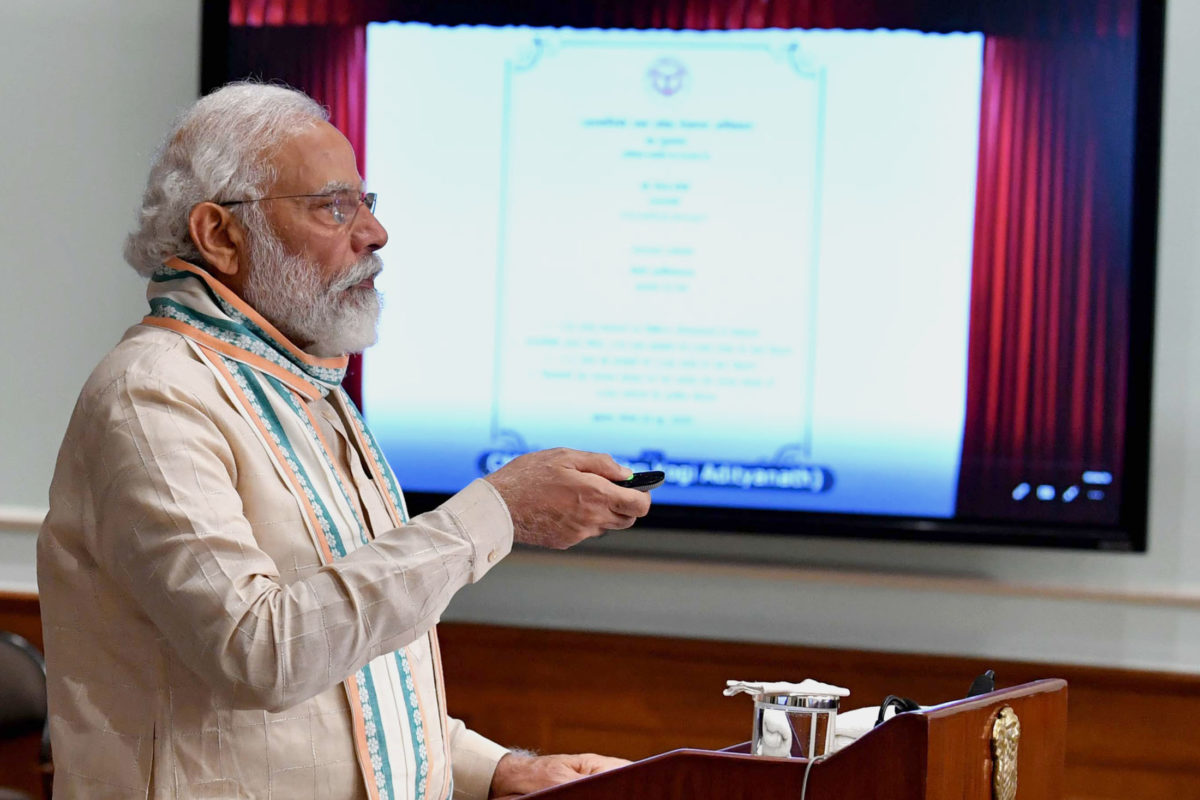India’s Prime Minister Narendra Modi will dedicate the 750 MW Rewa solar project to the nation through videoconferencing tomorrow.
The park was developed by Rewa Ultra Mega Solar Limited (RUMSL) with central financial assistance of Rs 138 crore. RUMSL is a joint venture company of Madhya Pradesh Urja Vikas Nigam Limited and Solar Energy Corporation of India (SECI).
The park—spread over 1500 hectares—houses three solar generating units of 250 MW each on 500-hectare plots. The project units were developed by Mahindra Renewables, ACME Solar Holdings and Arinsun Clean Energy, which emerged as the winners in a reverse auction by RUMSL.
The Rewa solar power project was commissioned with Rs 4305-crore investment, and is the first solar project in the country to break the grid parity barrier. Compared to prevailing solar project tariffs of around Rs 4.50/kWh in early 2017, the Rewa project achieved historic results: the first-year tariff of Rs 2.97/kWh with a tariff escalation of Rs 0.05/kWh over 15 years and a levelized rate of Rs 3.30/kWh over the term of 25 years.
The project is also India’s first renewable energy project to supply to an institutional customer outside the State: Delhi Metro Rail Corporation (DMRC) will get 24% of energy from the project, with the remaining 76% being supplied to the State DISCOMs of Madhya Pradesh.
In terms of environmental impact, the project would avoid 15 lakh tonnes of carbon dioxide emissions every year.
This content is protected by copyright and may not be reused. If you want to cooperate with us and would like to reuse some of our content, please contact: editors@pv-magazine.com.









2 comments
By submitting this form you agree to pv magazine using your data for the purposes of publishing your comment.
Your personal data will only be disclosed or otherwise transmitted to third parties for the purposes of spam filtering or if this is necessary for technical maintenance of the website. Any other transfer to third parties will not take place unless this is justified on the basis of applicable data protection regulations or if pv magazine is legally obliged to do so.
You may revoke this consent at any time with effect for the future, in which case your personal data will be deleted immediately. Otherwise, your data will be deleted if pv magazine has processed your request or the purpose of data storage is fulfilled.
Further information on data privacy can be found in our Data Protection Policy.